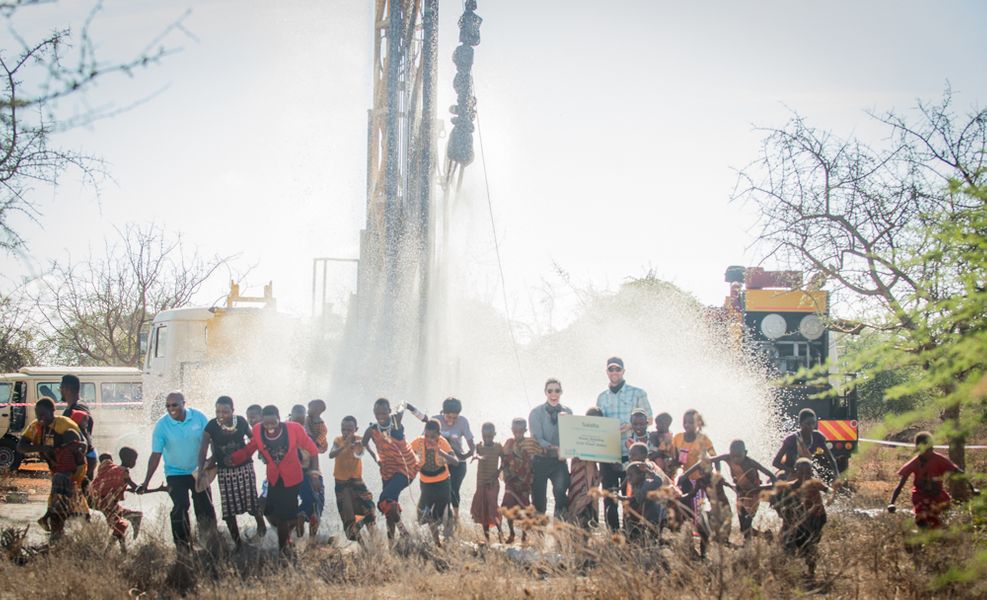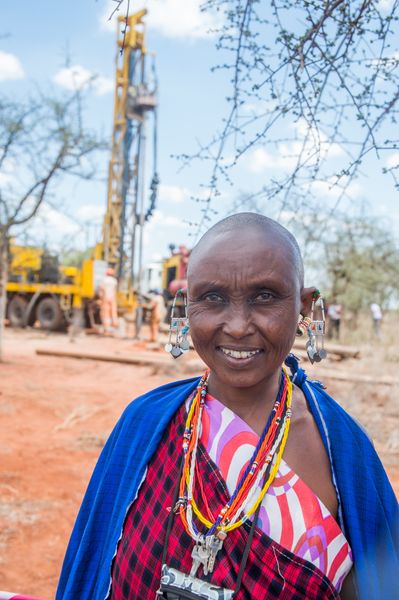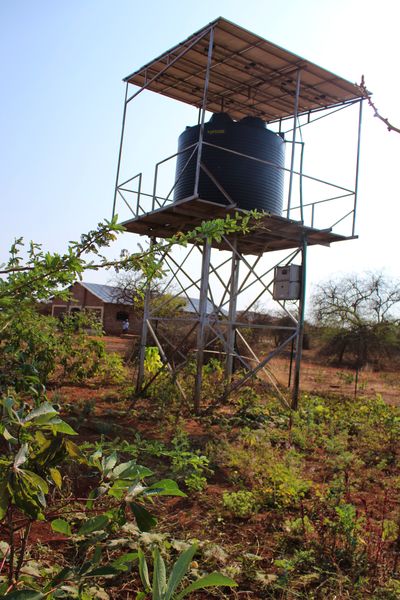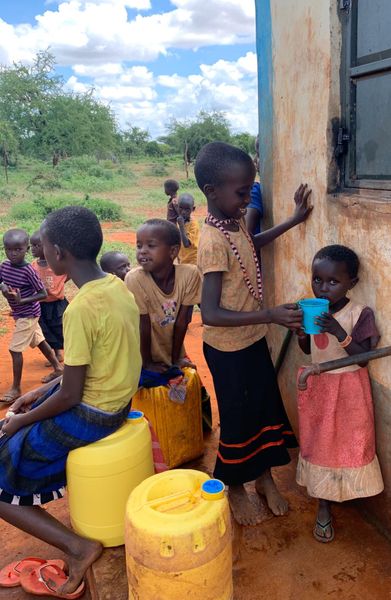September 24, 2021
Salaita, Kenya: A Bright Future Ahead
BEFORE THE WELL
For years, the Salaita community struggled with a lack of clean water, with all 2,000 individuals relying on a dysfunctional borehole well nearby that barely produced water each day. Young girls and women used to spend their days waiting for their turn to fetch water, hoping to bring home a single jerry-can of water (pictured here). Those who were not lucky enough to get water would have to wait to fetch water the next day. When rainfall was scarce – which was often – the people of Salaita walked up to 10 kilometers for water elsewhere, sometimes facing animal attacks, inter-tribal conflicts over the limited resources, and other dangerous situations. In early 2018, there were two fatal accidents resulting in the death of two children while they were crossing the road to fetch water.
Not only was fetching water a laborious and time-consuming task, but many in Salaita were also suffering from preventable water-related illnesses like typhoid and diarrheal disease, due to the contamination of the water they were collecting. Children were even kicked out of school for “being dirty,” making it difficult to continue their education. With the drought in the area continuing, the diseases, hardships, and daily challenges due to water scarcity were only destined to continue.
In November of 2018, Well Aware drilled and installed a sustainable clean water well for the Salaita community. The project has been so successful already that we partnered with Spectrum Brands to complete an expansion project in mid-2019, allowing for even greater access to clean water in the area.
AFTER THE WELL
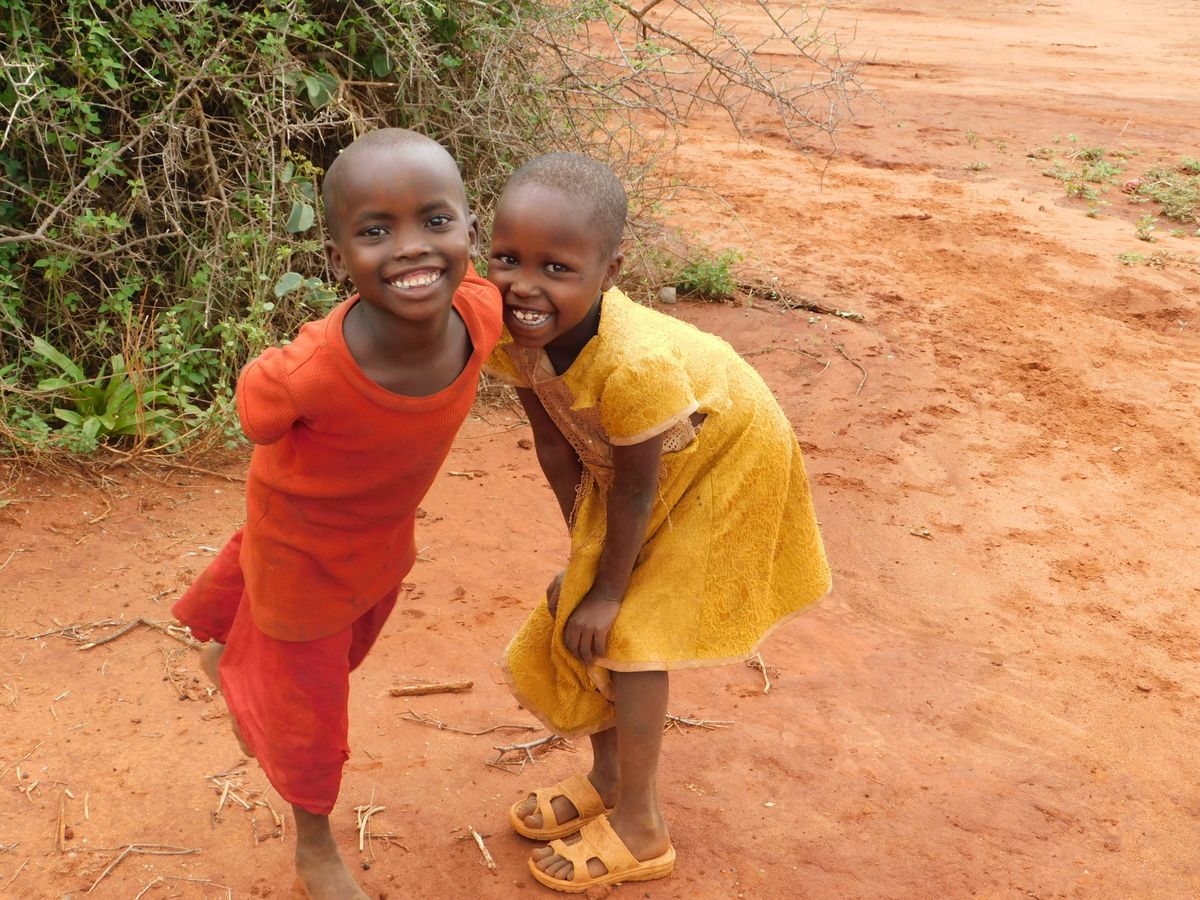
Fast forward to 2021, and Salaita is thriving.
Our team visited in early September with great news to report back.
Salaita’s population has increased from 2,000 to around 4,000 people — largely due to families congregating around this water source and creating more permanent settlements (many are of the Maasai tribe and were previously nomadic).
Since there are more people in the community, there are also more children under the age of 5. Among the Maasai, women are often encouraged to give birth to a high number of children because of the high child mortality rates reported among nomads. The women of Salaita have lost many children between the ages of 0-2 years. But now, with access to clean drinking water through the new Well Aware project, there is lower child mortality, less disease, and fewer postnatal deaths.
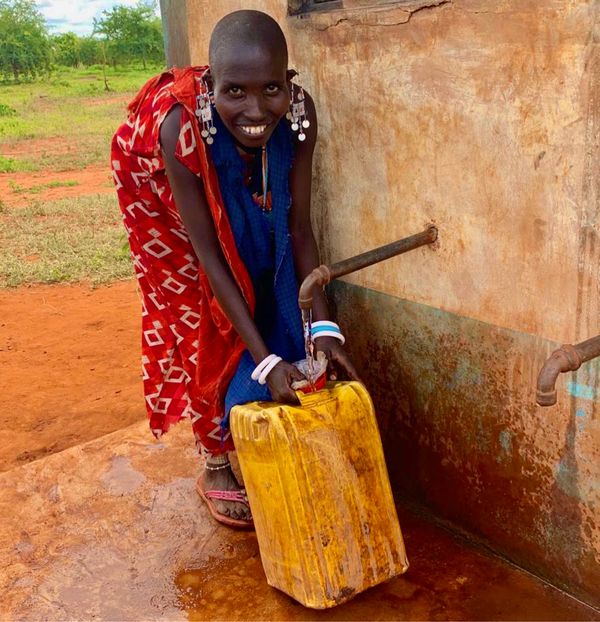
The women noted they now have more time for other activities with a clean water source that is close and reliable — instead of having to walk for miles and hours to look for water. And, children no longer miss school to fetch water!
Finally, our team noticed improved personal and community hygiene overall. The community used to share their drinking water points with their livestock, with priority often given to livestock (their livelihood and income). Now, the community has separate animal drinking points, enabling healthier and more hygienic water access for human consumption. Plus, with plentiful water, families are able to wash both their hands and their laundry more often, helping with personal hygiene and disease prevention
A BRIGHT FUTURE AHEAD
The continued progress of the Salaita community demonstrates how our lasting clean water projects provide long-term anchors for community development and success. It is inspiring to watch Salaita continue to thrive with this water well and we look forward to seeing all they will continue to accomplish in the future!

